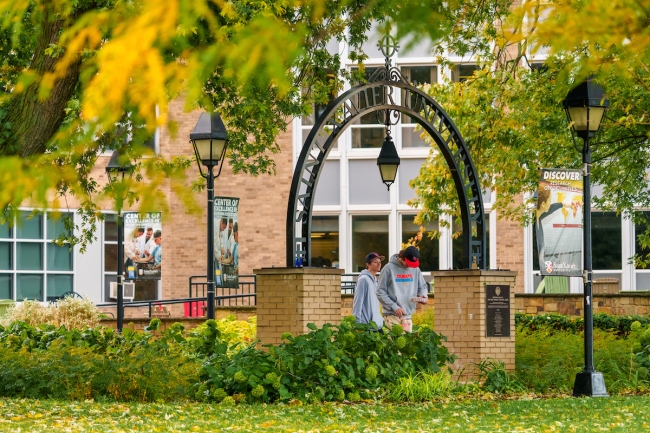You have /5 articles left.
Sign up for a free account or log in.

Starting in 2022–23, Saint Xavier University eliminated developmental math courses for incoming students. The initiative saw more students complete college level math courses in their first year.
Saint Xavier University
The value of developmental math courses has come into question in recent years, spurred by national data that few students who enroll in these courses will earn college credit or a degree in the future.
As part of a larger state-wide trend, Saint Xavier University in Illinois redesigned its introductory math program to help students in their degree progression while still promoting college-level learning and academic success. Early data has shown higher success rates among all students and helping students complete their math requirement within the first year of enrollment.
What it is: Developmental Education was designed to help underprepared students in their academic growth before placing them in a college-level course. Over the years, however, more research has shown that developmental students face barriers to completion. In the Illinois Community College system, less than one-quarter of developmental students complete a degree or certificate within eight years of enrollment.
Nationally, colleges and universities are eliminating developmental math courses to improve degree progression for students. One study in Florida found, after developmental education reforms, students were more likely to enroll in and pass introductory college-level courses in their first year, reducing equity gaps across ethnic and racial minorities.
What’s the need: At Saint Xavier, institutional data showed a student’s No. 1 predictor of success was whether they passed college-level math in their first year. The challenge was only half (55 percent) of first-year students in 2020 were passing 100-level math, and among students placed in developmental math, only four in 10 weren’t passing those courses.
The university relied on an Emporium Developmental Math model that wasn’t working for students because a high-stakes placement exam over-placed minority students in developmental math, explains Gina Rossetti, interim dean of the College of Liberal Arts and Education.
The course itself was self-paced and computer-based, requiring six semester hours of work and tuition with a higher threshold of passing than a college-level math course. Students were locked into a cycle of failure, with no progression to degree in sight.
In March 2021, faculty, staff and administration partnered to create an alternative model to better support students.
Building something new: The university received a Department of Education Hispanic-Serving Institution STEM grant to remove barriers to academic progress, particularly for students entering programs in Computer Science, as well as to improve career connections in coursework and enhance transfer and articulation agreements. The grant provided funding to hire a consultant to share best practices in moving to a corequisite model for math, known also within higher ed as corequisite remediation).
Over the course of a year and a half, a review team—including Rossetti, academic affairs, institutional research, student success, enrollment management, mathematics and records department professionals—met monthly to create a corequisite model.
How it works: Now, all incoming students (without acceptable transfer credits) enroll in a 100-level math, but some students are in sections with a built-in supplemental lab.
After indicating if they’re pursuing a STEM or non-STEM degree program, students with a less than 3.5 weighted high school GPA take a math placement exam—which they can study for.
If they are placed in a corequisite course, students can opt to participate in a four-day math bootcamp and retest to be placed in a standard 100-level math course, or enroll in the corequisite.
The bootcamp is offered synchronously online or in person to cohorts of 15 to 20 students and taught by Saint Xavier mathematics professors. The curriculum was written with the help of the consultant.
In each section of the corequisite course, a connected supplemental laboratory is included in all students’ academic schedules, which helps keep students on track in their learning.
The impact: Initial results are encouraging to administrators, with a 15 percentage point year-over-year increase among students who pass college level math in their first year. For the fall 2023 cohort, 575 students (75.8 percent) completed a college-level math course, compared to 395 students in fall 2022 (60 percent).
Anecdotally, students have shared in course evaluations that the program has benefited their learning and provided great hands-on experience. The change also reaffirms Saint Xavier’s mission in affirming that all students are college-ready and that it is the institution’s responsibility to help them get across the finish line, Rossetti says.
“All of us on the team really championed and valued two really core beliefs—the intrinsic dignity of every student and every student’s ability to learn,” Rossetti says. “We recognize we’re not here as gatekeepers. We’re here to really open doors for our students.”
We bet your colleague would like this article, too. Send them this link to subscribe to our weekday newsletter on Student Success.



